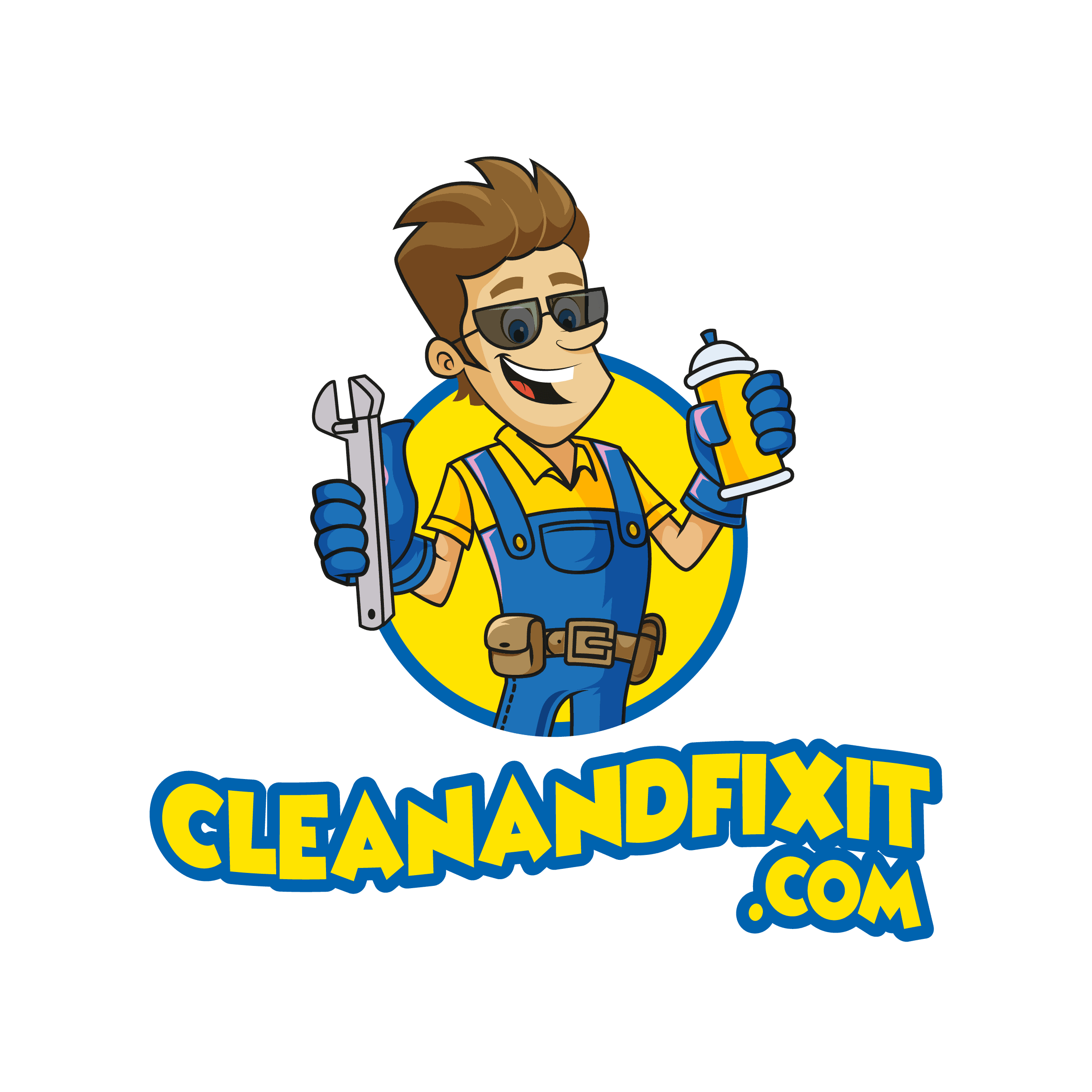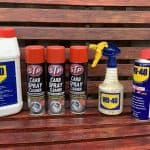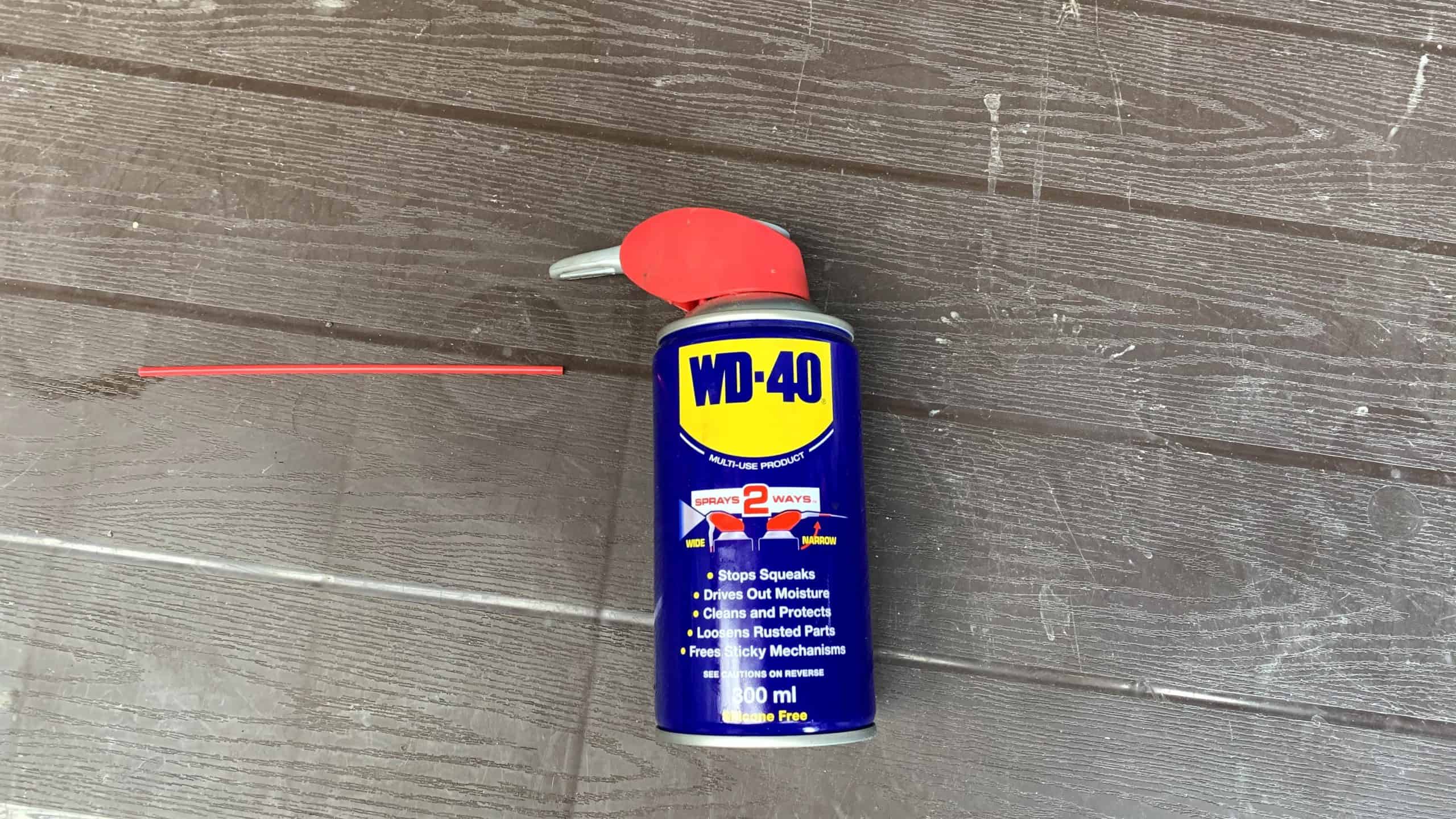WD-40 is known for having a wide range of uses. However, it doesn’t work well for starting engines. What WD-40 lacks in job-specific performance, it makes up for with its high flexibility. So what are bad uses for WD-40?
I’ll go through some common bad usages for WD-40 and show you why it causes issues. We’ll also look at good alternative products that can be easily obtained and will get the job done.

Bad Uses For WD-40
Rusted Nut Or Bolts
WD-40 is not great at getting stuck nuts off bolts or getting rid of rust. You’re much better off to try using penetrating oil.
Penetrating oils are low viscosity oils that penetrate into confined areas and lubricate them. This feature of being able to get even into the smallest gaps makes them effective at helping to loosen stuck bolts.
PB Blaster
One of the best-selling oil penetrating products is PB B’laster which is easily obtainable from Amazon. It also lubricates frozen bolts that were seemingly unremovable due to corrosion, allowing you to extract them without destroying the threads.
Engines That Won’t Start
WD-40 is listed as being highly flammable in its safety sheets. While WD-40 could work as what is referred to as engine starters, this could be said about many other highly flammable products, however, this does mean they are the recommended option.
You’re much better off getting the specialty products that will help start an engine. Engine starters are highly concentrated formulations that will help an engine to start, mainly composed of ether.
Sta-Bil
Gold Eagle’s Sta-Bil is one of the best-rated engine starter fluids on Amazon. It contains a lubricant that works together with the ether to help engines start quickly, saving your starter engine and battery.
WD-40 is not meant to be an engine starter and is not what the product is designed for. WD-40 tends to leave a residue that is not good for introducing into engine internals, causing dust particles and other debris to accumulate.
Cleaning And Lubricating Metal Parts
WD-40 does have water displacement and lubrication properties but this is not always what you want to clean metal. Lubrication is more complicated than just adding lubricant to things that you think need it, there are different types and strengths of lubricants.
In terms of lubricant strength, WD-40 is not the best option.
Notable examples include chains for bicycles, chainsaws, and motorcycles. The light lubricating nature of WD-40 is insufficient to cope with both the torque and speed of most chains.
WD-40’s water dispersal action could also degrade lubrication already applied to the chain. Removing the existing lubricant and replacing it with an inferior product is not the path to success.
1-Step Cleaner and Lubricant
A much better alternative for chains would be a mineral-based oil developed especially for your use case. For example, Finish Line’s 1-Step Cleaner and Lubricant will remove old lubricants and leave behind a specialty low friction lubricant.
Finish Line will also ensure that it keeps your bicycle chain in top condition in all weather conditions. It also helps prevent rust and corrosion.
Weapons and firearms take a lot of pressure and friction and so you want to make sure you use the right product. WD-40 can be used in a pinch but doesn’t have the strong lubricating properties that are needed for firearms.
Weapons need to be reliable and this is particularly important given that weapons sometimes need to be stored long term. The lubricant best suited for firearms is one that is heavy to stop it from getting stripped.
Extreme Force Weapon Lube
One of the best options that have been specifically formulated is Extreme Force Weapon Lube. It has penetrating oil properties to allow it to get into the crevices that WD-40 can’t, as well as preventing the internals hardening.
Cleaning metal parts is vitally important to ensure smooth operation. Totally removing all types of contaminants for parts such as the brakes not only prevents debris from causing damage but raises the effectiveness of the unit.
VHT’ High Performance Caliper Cleaner
However, brake cleaner has other benefits that trump WD-40. VHT’s High Performance Caliper Cleaner will remove all types of grease, oil, and dirt as well as drying without leaving a residue. WD-40 will tend to leave a wet film that attracts further debris.
Squeaking Metal Parts
Doors that squeak when you close them are annoying but with the right product can be fixed quickly. WD-40 is not the best product to use on hinges. While it is a recommended use by the company behind WD-40, it tends to leave a black residue and can attract dust.
Generally for metal-to-metal lubrication, you want to use grease. Grease is long-lasting, is highly tolerant of water, and can tolerate high temperatures.
White Lithium Grease
Generally, lithium-based grease is the best option particularly for garage doors and other hinges. CRC’s White Lithium Grease can be universally used on all sorts of vehicles from cars to snowmobiles as well as any shop or home use.
Lubricating Plastic Objects
WD-40 can be damaging to plastic especially if left for long periods. This means that it shouldn’t be used to lubricate or clean plastic, especially for moving parts.
One of the most common plastic objects needing lubrication is a Rubik’s cube. However WD-40 is going to cause issues, so you want to look into metal-on-plastic lubricants.
3-IN-ONE Multi-Purpose PTFE Lubricant
Lubricants containing PTFE in the product name will work well on plastics. While silicone used to be a common ingredient, petroleum mixtures such as those found in 3-IN-ONE Multi-Purpose PTFE Lubricant will work on plastics and metal.





